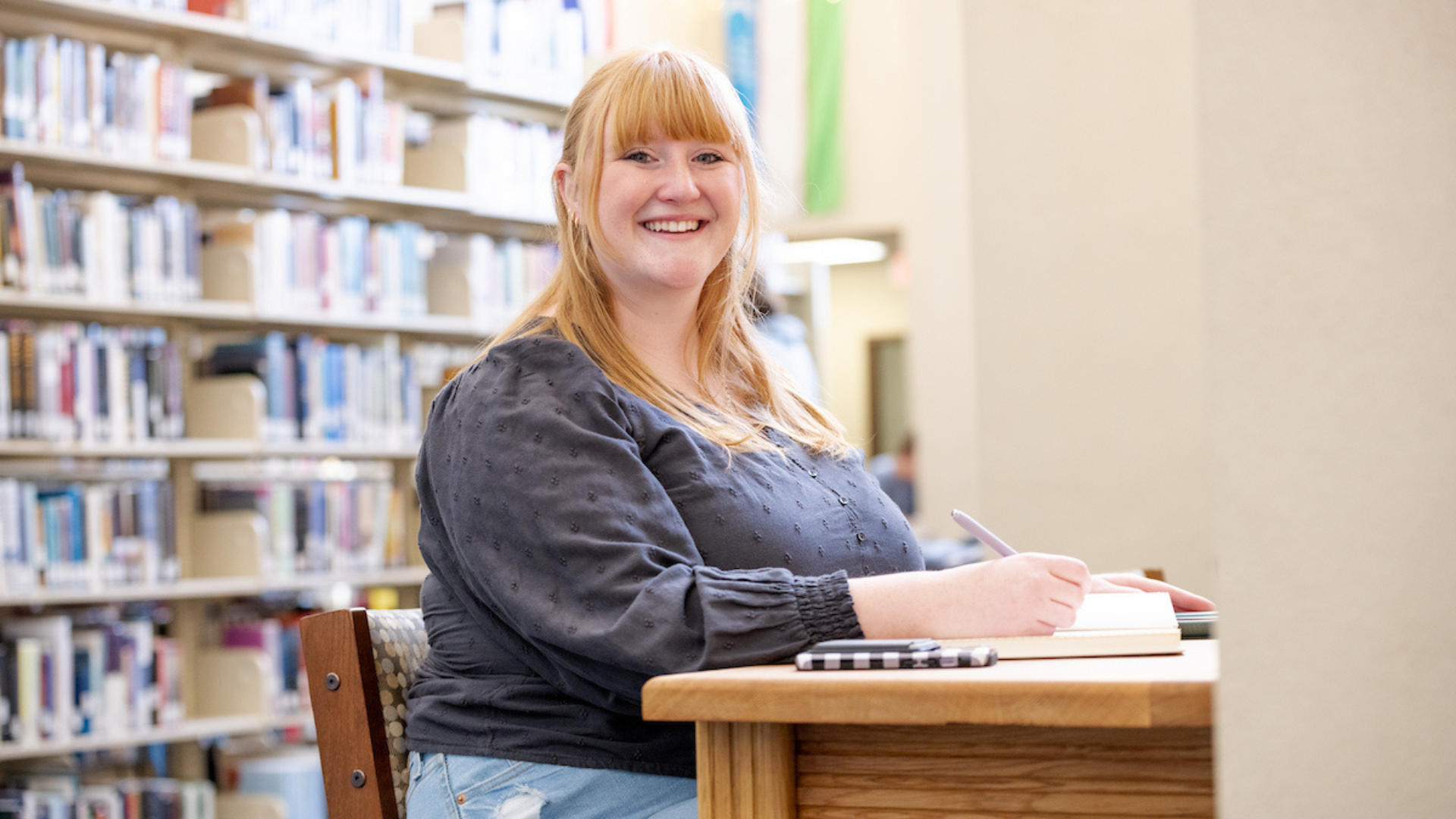The mission of the Seth Wilson Library is to provide quality resources and services to facilitate lifelong learning and research for students, faculty, staff, alumni, and the wider community.
Named after OCC’s founding academic dean, the Seth Wilson Library provides access to quality resources for the entire OCC community. Through consortial relationships with nearly 400 other academic and public libraries in the MOBIUS consortium and the Christian Library Consortium, Seth Wilson Library patrons have access to millions of materials locally, as well as throughout the region and nation.
The library catalog and academic databases are accessible online, and all resources have been curated for best use by residential and distance learning students, faculty, and community patrons. Hospitality is central to the services of the Seth Wilson Library, including free coffee, comfortable reading areas and various study spaces with carrels, tables, lounge desks, and reservable study rooms.
Library Hours
· Sunday: 2:00 p.m.-9:00 p.m.
· Monday-Wednesday: 7:30 a.m.-10:00 p.m.
· Thursday & Friday: 7:30 a.m.-9:00 p.m.
· Saturday: 9:00 a.m.-9:00 p.m.
Daily Quiet Hours: 7:00 p.m.-Close
The library is closed to the public after 7:00 p.m. Students and employees will have ID card/fob entry access until the regularly scheduled closing time. There is a 24-hour book drop on library porch.

Study Rooms
Students may reserve a study room for 2 hours at a time. If you cannot make your reservation time, please cancel as early as possible.


